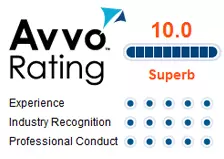The punishment you will face for even a first offense drunk driving conviction will vary depending somewhat on the court you are in, the judge you are facing, your prior record and what I call “your station in life.”
The Crime of drunk driving, which in Michigan is called OWI, OUIL, UBAL and OWVI, is somewhat unique because a conviction for drunk driving has a disproportionately severe impact on people in higher income brackets, including those who are professionally employed. The reason for this is not because the judge is tougher on these people. Instead it is because of the collateral consequences that apply.
At the Barone Defense Firm we will endeavor to determine what collateral consequences apply to your situation and endeavor also to lessen, as much as possible, the impact of these consequences.
I have written about how some DUI defense lawyers are unethical. Well, you may be surprised to learn that most states do not require lawyers to advise their clients of the collateral consequences that may apply to their circumstances. For example, here is a sample case from Illinois:
People v. Stewart, ___ Ill.App.3d ___, ___ N.E.2d ___ (4th Dist. 2008) (No. 4-06-0828, 3/28/08)
1. Guilty pleas have direct consequences, which relate to the “penal” consequences of a plea, and collateral consequences, which concern matters beyond the trial court’s control and unrelated to the length of the sentence.
The trial court is not required to admonish a defendant about collateral consequences before accepting a guilty plea. Similarly, defense counsel is not required to advise the defendant concerning collateral consequences of a guilty plea, and cannot be held ineffective for failing to give such advice.
However, counsel may be ineffective where he “affirmatively misrepresents to the defendant the collateral consequences of his guilty plea and the defendant pleads guilty based on the affirmative misrepresentations.” A guilty plea entered in reliance on such erroneous advice may be involuntary.
2. A post-conviction petition which alleged that counsel erroneously advised defendant concerning the good time provision which would apply to his sentence, and that defendant would not have pleaded guilty had he been given accurate information, made a sufficient showing of a constitutional violation to require an evidentiary hearing. Although good time credit is a collateral consequence of the plea, there is a “crucial distinction between the passive conduct . . . of . . . failing to discuss with a defendant the collateral consequences of a guilty plea and unequivocal, erroneous, misleading representations.”
The fact that most lawyers don’t know or care about collateral consequences is unfortunate because we often have people call our office AFTER they plead guilty because it was only then that they learned the true impact of a conviction. For example, see my article “Casino Workers Shouldn’t Gamble With Drunk Driving.”
Once you’ve been convicted, it’s pretty much too late. The only time you really have to avoid a conviction is before it happens. If you’d like to know how the Barone Defense Firm can defend your case and lessen the impact of a conviction, please contact us today!









